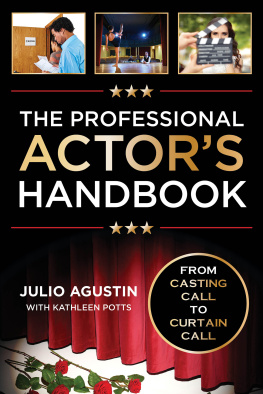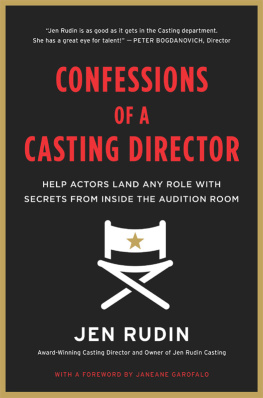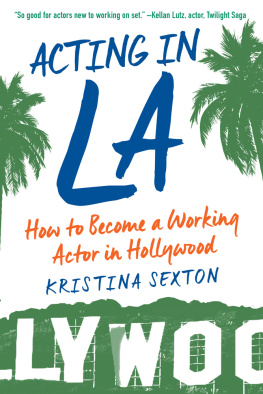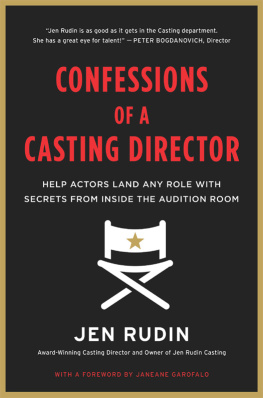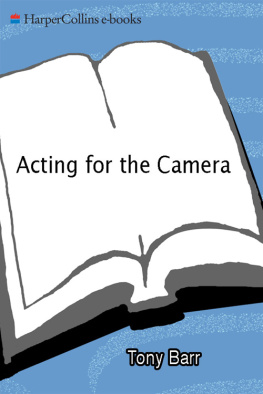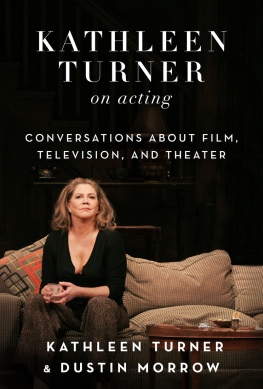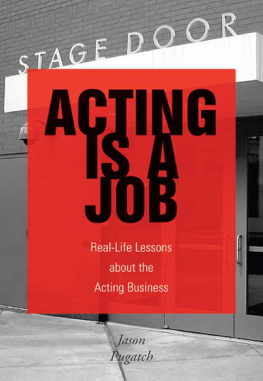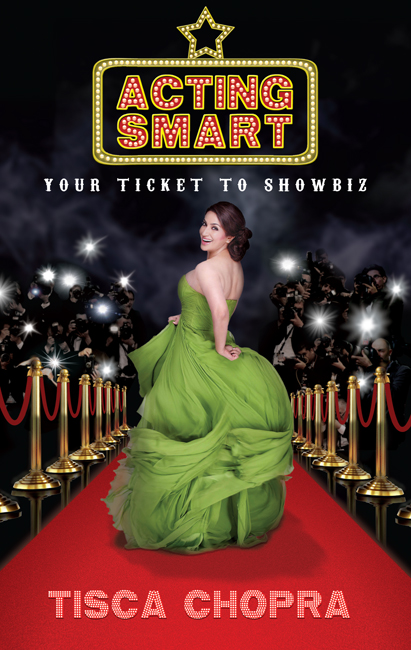
ACTING SMART
YOUR TICKET TO SHOWBIZ

Tisca Chopra

HarperCollins Publishers India
To
Sanjay, who makes me fly, and Tara, my little guiding star
My in-laws, who set no laws
My parents, to whom I owe everything,
And finally, the man who saved me, Dr Daisaku Ikeda
CONTENTS


A leading thoracic and cardiac surgeon from New York was keen on acting. He was a close friend of the producer of a TV series I was doing. So he was cast in the role of the family doctor, a small walk-on part with two speaking lines. Given his relationship with the producer, he was given the privilege of sharing the make-up room with the lead actor. The lunch for the lead cast was normally laid out in this room.
The good doctors shot was scheduled after lunch, but being the thorough professional that he was, he was present on the set well before, his lines rehearsed. He told us how many degrees he had, how many millions of dollars he had made and just how much focus is needed to perform a surgery, and so on and so forth. He said he had read all the books on acting he could lay his hands on. And now he wanted to try acting, you know, for a lark. Who knows, maybe Ill take this up next. Lifes about exploring, you know.
We were very impressed. The shoot resumed after lunch. The camera, mounted on a crane, swooped in on his face. His lips started to form the first words of the two lines he was supposed to say, but then trembled, spluttered and got locked into a slack half O. It was a great expression if you were in the film Anaconda and were face to face with the reptile for the first time. But when you consider that this was a family show on TV and that he was cast as the family doctor, it was, to say the least, quite inappropriate. They had to get an actor to play the doctor because the doctor could not face the camera.
The point of the story: you may be a billionaire or a rocket scientist, or indeed a thoracic and cardiac surgeon, but none of that will prepare you for acting. Like any other skill flying a plane, doing an endoscopy or replacing a carburettor it has to be learnt. And honed with hours and years of practice.
If you aspire to be an actor, know at the outset that you are about to embark on a journey akin to the Lord of the Rings. You will be faced with seemingly insurmountable obstacles, find yourself lost in the woods, you will confront enemies both internal and external, there will be magic, luck and a few hobbits to jolly things along. It is going to be a bling-ring of glittering lights, red carpets, premieres, breathtaking faces and buffed bodies in snazzy designer wear, all in a state of frenetic activity. A bubbling cauldron of creative energies and fragile egos, of lifelong friendships and beastly back-stabbings, of desperate hard work and frisky good fortune.
This book will not teach you anything about acting. What it will do is prepare you to deal with the various oddities, the in-betweens, the auditions, the portfolios and the agents. It will endeavour to show you the way around showbiz in India. It will try and take the guess-work out, bust myths and clarify the unspoken principles that people learn only after years in the business. Often, by the time you have learnt through experience, your chance has gone. The book will provide a road map to being a solid working actor as well as being part of the delicious excitement that the city of Mumbai provides. Along the way, you will also get an insight into the making of some of the most iconic films of our times straight from the people who made them.
What qualifies me to write this book? Consider this. I am a school principals daughter. No one in my family has ever acted professionally or even as an amateur. I came to Mumbai with nothing but a heart full of dreams and some pocket money. I got a good break but my first film, Platform, flopped miserably. I had no work for years. I fought back. I did what work came to me. Television, theatre, hosted shows both live and televised, TV commercials, print ads, student films and acting workshops. I even took part in a singing reality show. I was the first to be voted out. Luckily, this is not a book on how to make it as a singer.
Then came Taare Zameen Par. It changed the topography of my career. Now I am a busy and somewhat successful actor. I have several films ready for release and I am filming a few. I endorse brands, judge reality shows, work on scripts with some brilliant directors and have taught acting at several workshops.
Having said that, there is no gospel truth about the world of showbiz. Rules are constantly broken and new ones come to be. Though the knowledge shared here comes from some very credible sources, please take the words here as guidelines and pointers. They are not cast in stone. Go ahead and take a chance. Revel in the fact that the fewest of few get a chance to be actors. Big or small, whatever roles you get, do them with all your heart. You never know who is watching!
All the very best!
Mumbai
January 2014
Reality is an illusion. Dreams are for real.
Tupac Shakur

You may well as ask, at the start, what right do I have to tell you anything about the business? Its not as I am one of the brightest stars or even the most accomplished But I believe that Ive made the most mistakes and much of the book is a desire to share some of those experiences. So here goes.
I landed my first acting role at the age of two. By default. At the boarding school where my parents taught, they had no one that young to play the baby Lord Krishna. So I was cast. All I had to do was to walk across stage looking cute in a loose white chaddi-baniyaan. I walked to the centre of the stage, stopped at the footlights, gazed happily at the audience and refused to budge. The girl playing Yashodhara had to be sent to fetch me. I was carried off the stage, kicking and screaming.
My parents should have known then.
The first reason I became an actor was that my mother didnt give me a sibling in time. My brother was born only when I was six. We lived in Kabul, Afghanistan. On snowy winter evenings my parents would go out for Embassy parties and I was left to my own devices. Second-hand fairy-tale books from the American thrift shop with stunning illustrations on glossy pages and All India Radio ki Urdu Service were my two dearest friends. Kishore Kumar yodelled Zindagi ek safar hai suhana with Thumbelina. And Sayonara was my theme song for The Tale of Princess Kaguya and the Bamboo Cutter.
With the warmth of the bukhari reddening our cheeks, I would read and act these out to the songs on the radio to our Afghan maids. They loved Hindi films more than any Indian ever could. Dressed in my mothers curlers and spanking new Fab India bedcovers, I would do my own interpretation of Bhool gaya sab kuchh on the kitchen table. If I fussed about eating my supper, the maids gave me a pinch of naswar, a version of marijuana popular in the mountains. That made the food go down a lot faster, and then we could all get down to the real business of song and story. A happy lot indeed.
Next page

